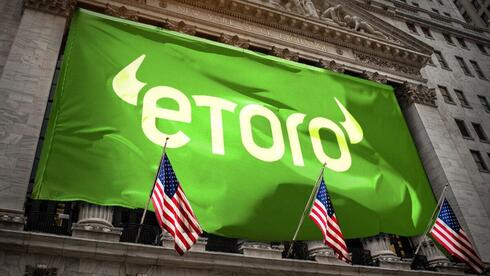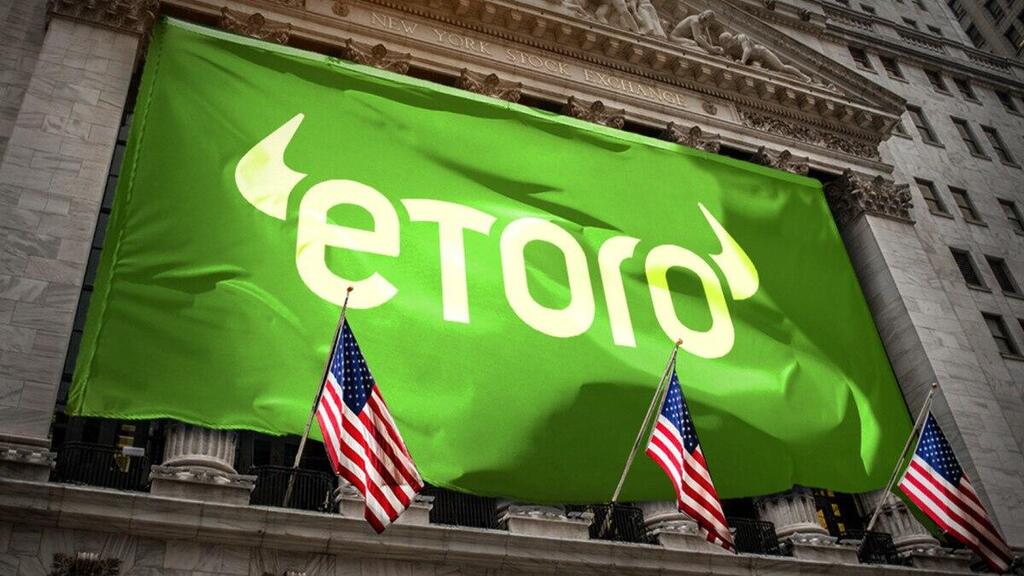
Analysis
Israeli high-tech dodges Trump’s tariff blow, but will the negative atmosphere hurt it?
Despite escaping direct tariff impacts, the global recession and halted investments may pose a greater threat to Israel’s tech sector.
It has not even been a year since Marc Andreessen and Ben Horowitz shocked Silicon Valley by announcing their support for Donald Trump's presidential candidacy. The founders of the venture capital firm Andreessen Horowitz are among the most influential figures in global tech and venture capital, and their endorsement marked the beginning of a broader wave of support for the Republicans.
The peak of this wave occurred during Trump's inauguration last January, when tech executives, from Jeff Bezos to Mark Zuckerberg, were seen standing by his side. Over the weekend, all attempts to get a comment from Andreessen Horowitz on Trump's controversial tariff move went unanswered.
Now, after the Nasdaq has suffered a 10% drop and technology companies have collectively lost $1.8 trillion in market value, reports indicate that American tech executives are heading to Florida to meet with the president at his Mar-a-Lago estate today. Even before the new tariffs went into effect, the global tech industry already felt the sting of Trump's policy, with companies such as fintech giant Klarna, concert ticket sales platform StubHub, and the Israeli company eToro all postponing their IPOs. This came at a time when it seemed that the tech IPO market was finally opening up after a prolonged drought, following the $1 billion fundraising by the American company CoreWeave last week. While CoreWeave's IPO was somewhat disappointing and saw a stock dip over the weekend, it was the first billion-dollar fundraising since 2021.
Like Andreessen and Horowitz, the CEOs of major companies have remained silent in response to Trump's policy, but the fear is palpable. There are two primary concerns: first, the dependence on supply chains for many products, particularly from the Far East, which have been hit with the highest tariffs—such as the iPhone. Second, there is the looming threat of a recession, which is now becoming more tangible and is expected to hurt private consumption, impacting sales for companies like Amazon.
The greater concern for the Israeli high-tech industry is the potential damage to American tech companies, rather than the direct impact on exports. The state of U.S. companies has significant implications for the global economy and for investors’ appetite for tech. These companies also have large development centers in Israel, where they employ thousands of workers, and they are both customers and potential buyers of Israeli startups. However, the 17% tariffs imposed on Israeli products mostly bypass high-tech exports, which is positive news for Israel, an export-driven country where half of the exports come from the high-tech sector.
"Israel is not expected to be significantly impacted because high-tech exports are mainly software, which falls under services and is not subject to tariffs," explains Dr. Assaf Patir, chief economist at the RISE Israel Institute. "The chip sector, which is relatively strong in Israel—especially Intel's exports—is also exempt for now. Moreover, most of Israel’s chip exports are directed to the Far East before reaching the U.S., so the tariffs will not apply. The only sectors that could be affected are medical and measuring equipment, which account for about $2 billion in annual exports, but I expect political pressure will lead to their exclusion."
The Israeli company Nayax, which sells payment terminals and clearing systems for vending machines, was among the few that commented on Trump's announcement, stating that it would not raise the prices of its products. "Although the new tariffs are beyond our control, the prices we charge are," the company said. "In times of uncertainty, it’s important for us to support our customers and help their businesses grow."
Patir's main concern is a global recession that could affect Israel’s export industries, including high-tech. "Trump's move is comparable in impact to President Herbert Hoover's 1930 tariff imposition, which reduced global trade by a quarter. However, at that time, international trade was only 14% of global GDP, while today it constitutes 60%. The depth of the recession will depend on when the U.S. decides to reverse its course."
Guy Preminger, senior partner and head of the technology sector at PwC Israel, tells Calcalist: "This is undoubtedly a blow, not because of the tariffs themselves, but because it pushes more Israeli startups to register in the U.S. Since the judicial reform, most new Israeli companies have been registering there. Even if Trump reduces tariffs from 17% to 10%, it will still remind everyone that Israel was not exempt from the policy. While registering in the U.S. doesn’t directly affect exports, the rhetoric can influence Americans’ preferences to buy from American companies. Israeli manufacturers will likely internalize this message when deciding where to establish factories, and this could impact decisions in the future."
Preminger adds that the main concern is the potential slowdown in investments: "In times like this, deals and factory construction are put on hold, and investors may shy away from new venture capital or startup investments."
As for the $32 billion Google-Wiz deal, the market crash raises questions about whether it could be jeopardized. The deal was signed in a favorable market, with both companies at higher valuations and investors optimistic. But the ongoing market turmoil has left the industry uncertain, and Google may reconsider the deal, potentially lowering its price or even canceling it, paying a $3 billion penalty rather than proceeding with a $32 billion purchase during a global crisis.
Looking to Europe, the current situation recalls past crises, such as the 2021 bubble burst and the 2008 and 2001 crises. In the aftermath of those downturns, giant companies halted acquisitions, creating a sense of uncertainty. As declines persist, entities that invest in venture capital—primarily financial companies and family offices—are likely to reduce exposure to the tech sector, which is seen as high-risk. This shift will reduce the amount of capital available for investments in startups, especially non-tradable investments. If Wall Street’s declines deepen, venture capital funds will likely take action, as seen in 2021.
One possible outcome of Trump's tariff policy is that it may spur more serious consideration of Europe as a target market. So far, most high-tech companies have focused on the U.S. due to its large consumer base and uniform regulations. In contrast, Europe has a similar-sized market but is divided by languages, cultures, and regulations. "Europeans have traditionally been more conservative and preferred buying from well-known American companies," says Yair Kuznitsov, co-founder and CEO of the startup Anecdotes. "However, Trump's actions may lead to a preference for Israeli products, which are well-regarded in Europe. This shift could create an opportunity for Israeli companies to expand their presence in the European market."
















